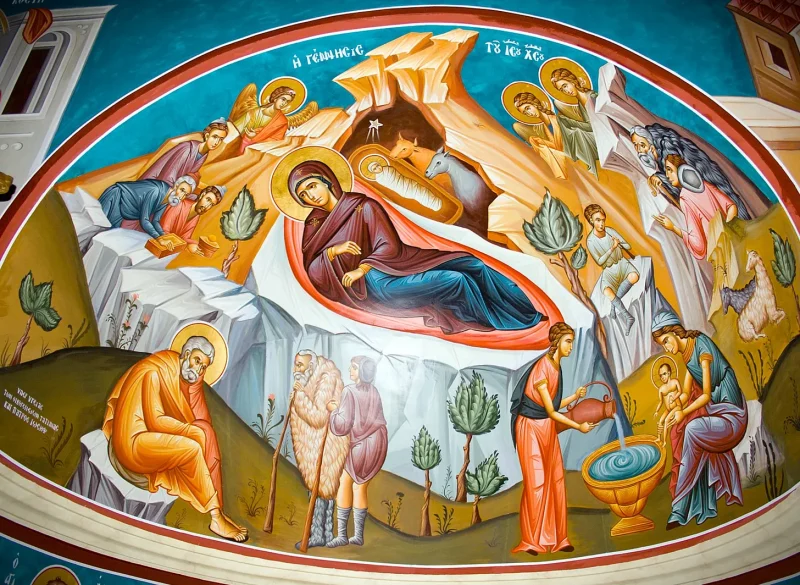The birth story of Jesus Christ is a sacred narrative, woven together from the divergent accounts of Matthew and Luke. As such, Christmas is a rite of reenactment, bringing the ancient Nativity scene to full consciousness. This miracle recurs each year in the Christian heart.
A virgin mother is visited by terrifying apparitions. A divine infant is laid in a feeding trough, heralded by angels and born under a portentous star. A sequence of Hebrew prophecies is fulfilled—the progeny of king David appears in Bethlehem, becoming the suffering savior foretold by Isaiah. A benevolent power arrives to transform a fallen world.
None of this makes sense, from a rational perspective, but that doesn’t matter. Sacred space and time are maintained by barriers against skepticism. Logical questions dissolve upon contact. These motifs didn’t appeal to intellect in the first century, nor do they make scientific sense today. They were never meant to.
“My kingdom is not of this world,” Jesus said. Faith endures beyond reason.
Even in ancient Greco-Roman society, haughty intellectuals disparaged the idea that God would incarnate in such a humble guise. For them, Christ was a crippled demigod for superstitious heathens, like Hercules or Dionysus—both sons of Zeus—but without the earthly glory.
Unlike Hercules, the preacher Jesus committed no heroic acts of violence. No monsters were strangled by his hands, and no enemy soldiers were struck down by his club—save for Jesus whipping money-changers outside the temple, or his own self-sacrifice on the cross.
Unlike Dionysus, the ascetic Jesus indulged no drunken orgies. He had no wild women chasing him through the forests. The closest parallels are the wedding at Cana, where he turned water into wine, or the prostitutes whom he transformed into respectable women.
Rationalists often use comparative mythology as a means to discredit religious faith. They point to all the miraculous birth stories found in the ancient world and say, “Look, the Nativity is just another story.”
In India, the Buddha was said to have been conceived miraculously, descending from Tusita heaven into his mother’s side in the form a white elephant. The moment he was born, according to the Jataka tales, he took seven steps and proclaimed, “For enlightenment I was born—for the good of all sentient beings.”
In the Mahabharata of the Hindus, the epic’s heroes, the five Pandavas, were the offspring of two queens made pregnant by the gods of Justice, Thunderstorms, and Wind, as well as the Twin Physicians to the gods.
Unlike the Buddha, though, whose victory was ultimate peace in meditation—or Jesus, whose glory was to defeat death on the cross—the Pandavas were demigods whose destiny was to exert worldly power through violence.

Fundamentalist theologians have a logical response to these tales, based on their literal interpretation of the Bible—“Our sacred story is true. Theirs are false.” No further questions.
Read the rest here:














